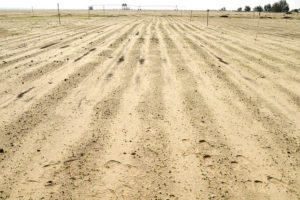‘Asbestos Tsunami’ Is Ahead for Asia
Health experts say the coming decades will see an epidemic of asbestos-related diseases in Asian countries where the material is still used in construction. China and India, with their rapidly developing economies and huge populations, are expected to be the hardest hit.
Health experts say the coming decades will see an epidemic of asbestos-related diseases in Asian countries where the material is still used in construction. China and India, with their rapidly developing economies and huge populations, are expected to be the hardest hit.
Japan and South Korea are the only Asian nations that have banned asbestos.
One recent study showed that the Asian continent accounts for roughly two-thirds of the world’s asbestos use — double its share during the last decades of the 20th century.
Medical experts say it typically takes 20 to 50 years after exposure to develop mesothelioma and related diseases, which kill more than 100,000 people worldwide each year.
While Canada has largely banned asbestos for domestic use, the country is Asia’s second-largest supplier behind Russia. –ARK
Your support matters…Gary Cohn at The Mesothelioma Cancer Alliance Blog:
“What we can expect is very predictable – an absolute catastrophe of death and disease,” Dr. Arthur Frank, chairman of environmental and occupational health at Drexel University, said in a recent interview with this reporter. He added that the coming catastrophe is “all preventable.”
Frank’s cautionary words parallel numerous scientific studies and expert predictions forecasting a surge in mesothelioma and other asbestos-related diseases in Asia in the coming decades. This is primarily because India, China, and other countries on the continent continue to use – or in some cases, even increase – their dependence on asbestos for cheap roofing insulation, in cement, and other widespread applications.
Independent journalism is under threat and overshadowed by heavily funded mainstream media.
You can help level the playing field. Become a member.
Your tax-deductible contribution keeps us digging beneath the headlines to give you thought-provoking, investigative reporting and analysis that unearths what's really happening- without compromise.
Give today to support our courageous, independent journalists.






You need to be a supporter to comment.
There are currently no responses to this article.
Be the first to respond.